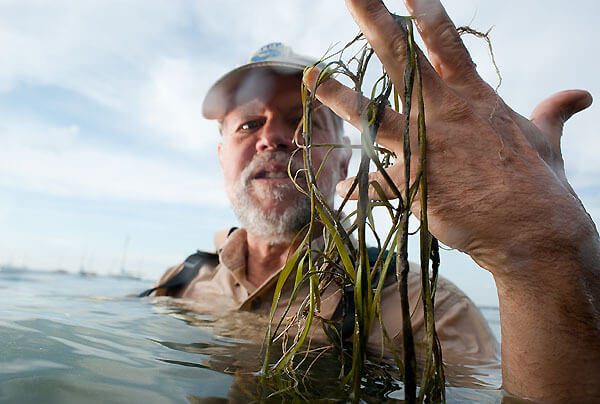21 Jun UW scientist wins Blue Planet Prize

Holding strands of loose native pondweed that floated to the surface, Steve Carpenter is pictured in Lake Mendota near the UW–Madison campus in 2009. PHOTO: JEFF MILLER
Steve Carpenter, one of the world’s foremost lake ecologists and professor emerit at the University of Wisconsin–Madison, has been awarded the Blue Planet Prize.
The Blue Planet Prize has been awarded annually by the Asahi Glass Foundation since 1992 to two individuals or organizations in recognition of outstanding achievements in and application of scientific research that have helped provide solutions to global environmental problems. The name is a reference to cosmonaut Yuri Gagarin’s first eyewitness description of our planet from space — “the Earth is blue.”
The other recipient of the 31st Blue Planet Prize is Jigme Singye Wangchuck, the king of Bhutan. The pair will accept their awards and deliver commemorative lectures at ceremonies in October at the University of Tokyo and Kyoto University.
Carpenter, a member of the UW–Madison Center for Limnology faculty since 1989 and its director from 2009 to 2017, received the award in recognition of more than 40 years of study and description of lake ecosystems.
“Through his research on lake eutrophication, from nutrients such as phosphorus and nitrogen, he studied the resilience of lakes using mathematical models, providing a new perspective on social-ecological systems,” the foundation’s citation says. “He also worked on environmental pollution from phosphorus and nitrogen through land use, showing the critical state of the global phosphorus cycle and the need to review human activity from a broad geochemical viewpoint.”



